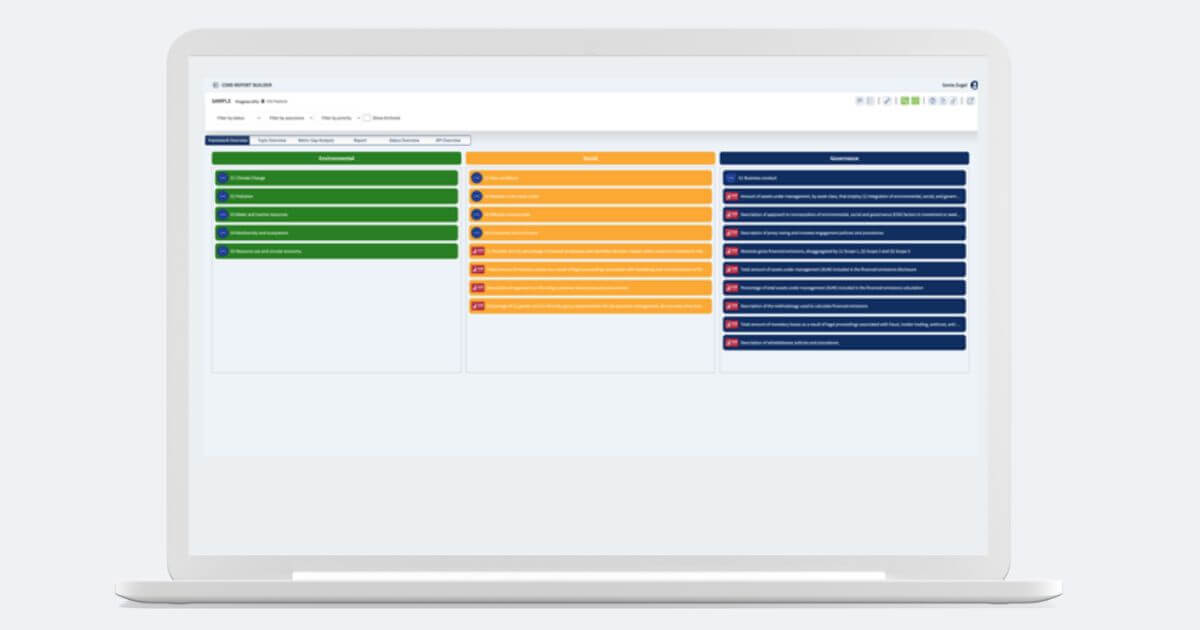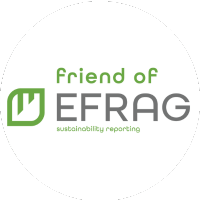Corporate Disclosure Reporting – a complete solution
Corporate Disclosure Management
Create your company’s sustainability narrative. Easily build sustainability reports with our self-guided Corporate Disclosure Management module. Mix and match topics across frameworks using master mappings and built-in guidance. Streamline data collection with reusable worksheets and integrated project management.
Empower your sustainability strategy with a platform that helps companies and investors navigate Sustainability risks, uncover opportunities, and align with regulatory and decarbonization objectives—efficiently and effectively.
Key Benefits
Tailored Sustainability Reporting Across Leading Frameworks
Customize your sustainability report with seamless support for CSRD, ISSB, GRI, TCFD, and UN SDGs, ensuring alignment with global standards.
Smart Framework Mapping for Efficiency
Map data points across CSRD, GRI, and ISSB to streamline reporting, reducing redundancy and ensuring consistency across multiple disclosures.
Industry-Specific Guidance for Compliance & Impact
Access expert-driven insights on industry requirements and framework-specific topics to enhance compliance and strategic decision-making.
Centralized Data Entry & Reuse
Enter data once and automatically populate it across relevant frameworks, saving time and reducing the risk of discrepancies.
End-to-End Project Management & Assurance Integration
Manage data requests, track changes with full audit trails, and provide assurance teams with their own project management tools for streamlined verification.
Scalable & Collaborative Data Collection
Request data from internal teams and external partners, even if they are not platform users, and leverage bulk functionalities to accelerate reporting.
One Platform
Comprehensive Sustainability Reporting. Simplified for you.




